Learn Spanish in Costa Rica at Spanish School for Residents
About the school
Spanish School for Residents and Expatriates is a BOUTIQUE SCHOOL founded in 2010 to become a specialized school for students living in Costa Rica for long periods, such as retirees, diplomatic missions, and directors of international companies, entrepreneurs, etc…
Spanish School for Residents and Expats focuses on precisely what you need to learn to function in a Spanish-speaking country. At the Spanish School for Residents and Expats in Escazú and Curridabat, we focus on what the resident/expat needs to know to live here in Costa Rica day by day. We also focus on strengthening and refining each student’s vocabulary and language skills by keeping our classes small and intimate.
We believe the best approach to teaching Spanish is to teach students what they need to know in real-life situations. You will learn what to say in a bank, restaurant, government office, supermarket, pharmacy, grocery store, or taxi driver. This approach not only increases your confidence but also allows you to take your experience to a whole new level.
In 2022 we were pleased to celebrate twelve years of teaching Spanish to hundreds of expatriate or resident students who have allowed us to be an essential part of their lives during their stay in Costa Rica. Countless are the beautiful experiences we have shared over the years.
Due to the situations presented by COVID-19, 100% of OUR CLASSES ARE ONLINE, with the idea of protecting all our students’ health.
However, we are sure that we will notify you immediately when you can safely return to the face-to-face sessions.
We thank students for their trust in our school, and we warmly welcome all who are thinking about starting this learning process.
Our school in 2010
Our school in 2014
Our school in 2016
Our School in 2020
Directors, Teachers and Staff
Alejandra (Alex) Murillo Q.

Director & Spanish Teacher
Hello!
I’m Alejandra Murillo. I studied Design and Architecture, but soon, I discovered that my real passion was teaching Spanish as a second language.
I started teaching over fourteen years ago, and each day, I like it better. The Spanish Language can be fun and easy to learn, depending on how you are learning it. I know that because I have been studying English and Japanese for a long time and it has been very challenging.
But I believe that if the Spanish teacher makes the learning process fun and interesting, it would be easier to learn.
“Let us teach you to love the Spanish language as we do.”
Online Spanish Classes with Spanish School for Residents and Expats. Costa Rica, Escazu.
Wagner R. Freer Chan
Director & Spanish Teacher
Hello!
I’m Alejandra Murillo. I studied Design and Architecture, but soon, I discovered that my real passion was teaching Spanish as a second language.
I started teaching over fourteen years ago, and each day, I like it better. The Spanish Language can be fun and easy to learn, depending on how you are learning it. I know that because I have been studying English and Japanese for a long time and it has been very challenging.
But I believe that if the Spanish teacher makes the learning process fun and interesting, it would be easier to learn.
“Let us teach you to love the Spanish language as we do.”
Online Spanish Classes with Spanish School for Residents and Expats. Costa Rica, Escazu.
John Boozer
Student Coordinator
I am originally from North Carolina and have lived in Costa Rica for a bit over seven years. I learned very early that one could significantly increase the quality of life and the overall experience here by speaking Spanish – at least some Spanish. While I’m certainly not fluent yet, I am what I’d call “functional” in Spanish. I can take care of normal business at a bank or elsewhere, go shopping, talk with, and give directions to taxis, ask questions, and generally enjoy myself while out and about.
I started with Spanish School for Residents and Expats 3 years ago and have been a student ever since. I am now the school’s Student Coordinator. In this capacity, I assist potential new students with questions about classes and the school. Many have not yet come to Costa Rica and have questions about life in general here. We can also assist with temporary housing near the school. I am typically the first contact new students have with the school.
I am proud to be on the school staff. We offer excellent classes in groups or a private setting but also cultural programs like museum tours, city tours, etc. All these enhance the learning process of both Spanish and Costa Rica.
If you have any questions about the school, our classes, or anything, please contact me at Phone +(506) 2288 2157 or email: [email protected].
Online Spanish Classes with Spanish School for Residents and Expats. Costa Rica, Escazu.
Majo Freer Murillo
Community Manager & Teacher
Hello everyone !!!
My name is María José Freer Murillo, and as you can see, I am the youngest member of this team.
Therefore, in addition to starting as a Spanish teacher for children, I am also in charge of the social networks of both schools, so if you see me doing videos or taking pictures during classes, you know what the reason is!
I hope we see each other at some point, and since I wish you many successes in your classes!
Online Spanish Classes with Spanish School for Residents and Expats. Costa Rica, Escazu.
Diana Aguilar
Spanish Teacher
Hello! My name is Diana Aguilar, and I’m a student of both French teaching and English teaching at the University of Costa Rica. I approached the education world by chance. My professional interests were initially been others, but I made a
mistake when I sent the college application that eventually brought me to “la Facultad de Formación Docente.” What a surprise when I realized that languages and teaching were my things! After a while, my love for French and English increased.
Helping people with their formative process to achieve goals and dreams is my biggest inspiration.
I hope to be a great instructor throughout your Spanish learning process.
Online Spanish Classes with Spanish School for Residents and Expats. Costa Rica, Escazu.
Snoopy
School pet
Hello, I am Snoopy.
Snoopy is practically another member of our team. He always welcomes all students and many of them need to cuddle him when they are taking their Spanish classes. Many of them want to take Snoopy home, but it is definitely not possible. We invite you to meet our dear Snoopy.
Online Spanish Classes with Spanish School for Residents and Expats. Costa Rica, Escazu.
Top Tips to Start Learning Spanish As An Expat
Credit: Amy Whitney
If you’re spending any time in Mexico, learning Spanish is always top of mind. But the big question is, “Where do you start?” This article will give you 4 top tips to start learning Spanish as an expat in Mexico.
If you are like most new language learners, you will probably download a Spanish app like Duolingo or do a quick google search for “Beginner Spanish Lessons” or “How to learn Spanish” that brings up a never-ending list of websites, videos, Spanish courses, and a huge list of apps.
After a few months of working diligently on your Duolingo app, you realize that you have learned some new words but when you are out in the real world, you are still unable to handle even the most basic of situations in Spanish. You can’t understand what people are saying and when it’s your time to speak, you completely freeze up.
Which leaves you wondering…”Am I learning Spanish in the right way?”
In this article, I’ll explain the 4 top tips (or mistakes to avoid) to help new. inexperienced language learners get started on the right foot on your journey to learn Spanish!
1. Learn Spanish vocabulary that is relevant and useful.
Credit: Amy Whitney
Although learning colors, days of the week, and “general” vocabulary (i.
When we think about the first words we teach our children, they are highly functional and practical to help them explain what they want or need with words (i.e. bottle). It’s not until they are already putting sentences together that they start to learn colors, numbers, and more descriptive words.
Applying this same concept to an adult living abroad in Mexico, your immediate communication needs revolve around the day-to-day activities and interactions you will face in Spanish. Being able to handle situations such as:
- Ordering in a restaurant (without needing to point)
- Asking for an item behind the counter
- Understanding the questions being asked at the grocery store checkout
- And most importantly, knowing how to respond back.
By finding lessons or a Spanish course that focuses on words and phrases that are practical and relevant, you will have the opportunity to hear and use them constantly in your daily life.
Learn Spanish that aligns with your needs.
Although there are many excellent courses and teachers out there, you will find the majority of them teach Spanish in a general way. Hence the need to learn a ton of general vocabulary (desk, run, apple, etc.) and to work through the grammar rules in the order they are presented in the textbook.
These courses are great for students who want to learn Spanish as a hobby or for those who need to pass an exam; but ultimately, for those of us living abroad, it makes more sense to invest our time, energy, and memory resources into learning Spanish that will be immediately useful.
The key here is to recognize that you are looking for a specific type of Spanish that will help you become functional in Spanish for everyday life. As you sort through different courses and lesson options, you can check in with yourself to make sure the course content is something you can see yourself using right away, like these phrases.
2. Figure out how you remember best.
Credit: Amy Whitney
Being unable to remember words is one of the biggest obstacles for new learners. Most students tell themselves that they have a bad memory, but in the majority of cases, it’s that they have never been taught how to learn vocabulary in an effective way.
Everyone learns in a slightly different way and while you are trying to figure out your “best method”, try to keep your mind open to exploring different strategies to help learn and remember vocabulary more effectively.
Whether you use lists, sticky notes, reviewing audio, apps, games, flashcards, a notebook, or a combination thereof; finding the right tools to help you review frequently will be an essential part of successfully learning Spanish.
Use proven memory techniques…
Most of us were taught to memorize new information by reviewing it or writing it down over and over. Keep in mind, this is only one method of the many ways to learn vocabulary, and it’s not necessarily the most effective.
Our brains love stories! The more creative or bizarre the story is, the easier it is to remember. If you are having a hard time remembering a word, creating a crazy mini-story can be the key to remembering it easily.
Credit: Amy Whitney
As an example, the word ‘galleta’ in Spanish means cookie and it is pronounced like guy-yet-ah. To remember this, you can use the first syllable “guy”. Take the time to think about what this “guy” looks like and you can also picture him carrying a gigantic cookie.
The second syllable is “yet” but because ‘yet’ is not a very visual word, the word “yeti” might help you to create a more dramatic story in your head. This yeti is named “yeta”. Yeta really likes cookies (like the cookie monster).
Whenever you are trying to remember the word “cookie”, you will instantly see this scene in your mind’s eye with a guy running as fast as he can down the road carrying a gigantic cookie with a “yeti” named “yeta” running after him. This hint “Guy-yeta” will give your memory the help it needs to remember “galleta.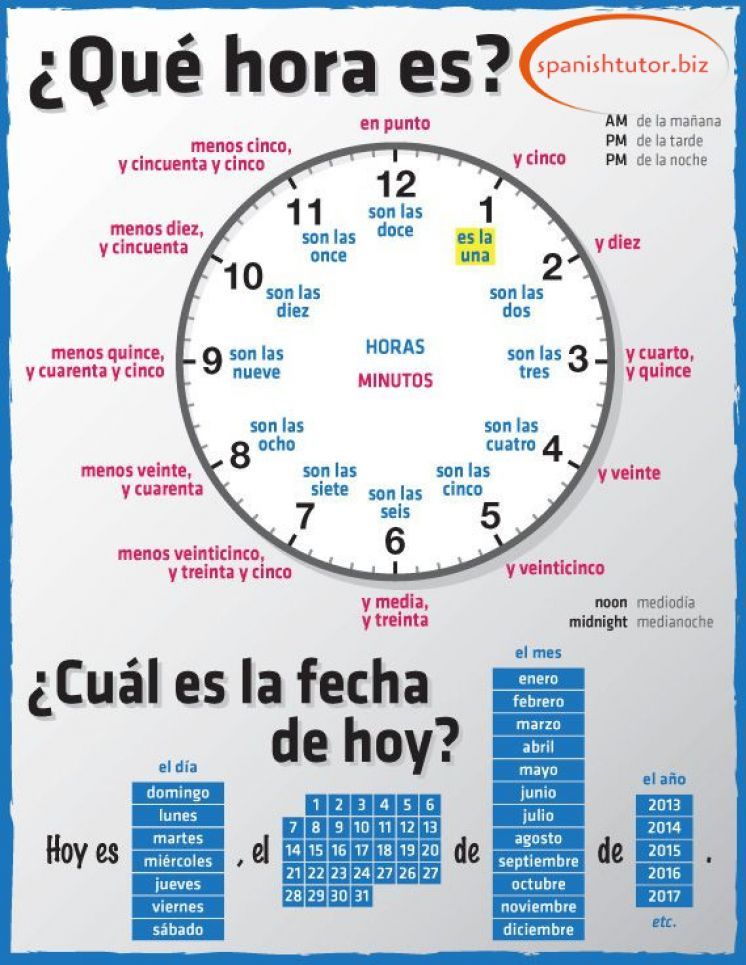
Although it might take a few minutes to think of an association, this will allow you to store this word in your long-term memory for easy recall. The hints or associations might not always be perfect but they do give you enough information to recall the word when you need it.
3. Create consistency for smooth and steady progress.
“If you don’t use it, you lose it” applies to Spanish as much as it does to exercise. Whether you are a snowbird or a resident of Mexico, the key to making consistent progress is to make it a habit.
If you run on the beach every morning for 3 months while you are in Mexico, then you go back home to sit on your couch, you will lose all of the progress you worked hard to gain. The same thing happens with Spanish.
Just like going out for a 30-minute walk, learning Spanish can be an enjoyable part of your day and should be something you look forward to. Learning something new and being able to go out and use what you just learned is extremely rewarding and motivating.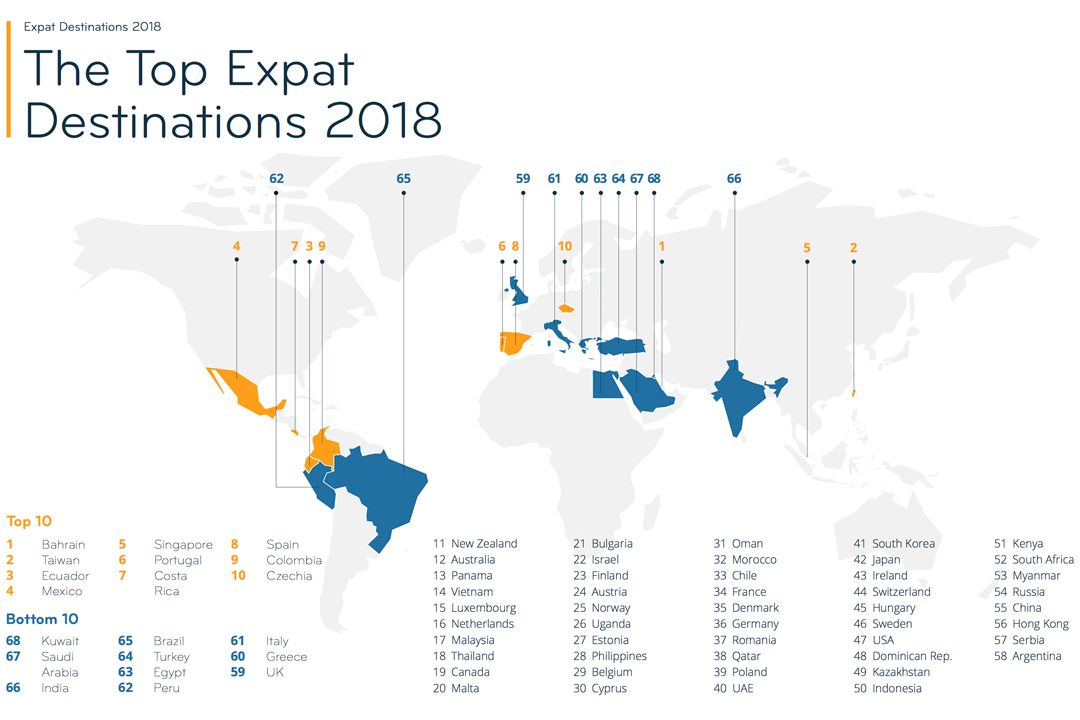
To be successful and reach a conversational level or beyond means that Spanish is going to be part of your life and one of those things you do regularly. It’s just like a healthy diet, maintaining your fitness level, or any other skill that fades without practice, “If you don’t use it, you lose it”.
And remember, you don’t need to be in Mexico to continue working on your Spanish. Thanks to the internet, you can be connected to a teacher, course, or app from anywhere in the world. It’s only up to you to make the commitment to be consistent to at least maintain your level while you are on longer vacations.
Enjoy the journey…
New learners are excited but they tend to approach language learning like an intense sprint instead of a long, enjoyable hike through the mountains. Having a realistic expectation from the beginning can help you to stay consistent and committed to Spanish for the long haul.
4. Stop waiting for the “perfect time” to learn Spanish.

Credit: Amy Whitney
Like our previous example with improving your diet or starting to exercise, there isn’t really a “perfect time” to start; you just need to start doing it. Luckily, learning Spanish doesn’t require a major time commitment to get results and with as little as 20-30 minutes a day, you will see steady results, especially if you apply the tips from this article.
Like any new habit, it is best to start slowly and to make sure you have a support system to keep you accountable, motivated, and on track! Tell your friends and family that you are learning Spanish or join a course for the community support of peers and your teacher.
If learning Spanish is a priority for you right now and you are ready to get started on your learning journey, you can check Expat Spanish Lessons and learn more about the Spanish from Zero Course. Our lessons teach the useful and practical Spanish you will need for your life living abroad in Mexico.
Spanish for expats (moving abroad for permanent residence)
Spanish for expats is
a Skype course for adults who decide to change their country of residence and move to Spain, Latin America or another Spanish-speaking country for permanent residence.
1.
Get a language base to continue learning Spanish after moving abroad
2.
Gain confidence in finding qualified and well-paid jobs
3.
Adapt to new language and culture more easily without the help of an interpreter
Recommendations
For all levels.
Duration of training: 6-9 months for each level.
The recommended intensity is 2 lessons per week.
Course fees – see the “Prices” section.
Payment at the minimum price from 1 lesson + discounts from 10 lessons.
At what level do students learn Spanish for moving abroad?
The program is suitable for students of all skill levels.
If you need to pass certain exams and get a certificate in order to work abroad, take a look at the preparation course for international Spanish exams.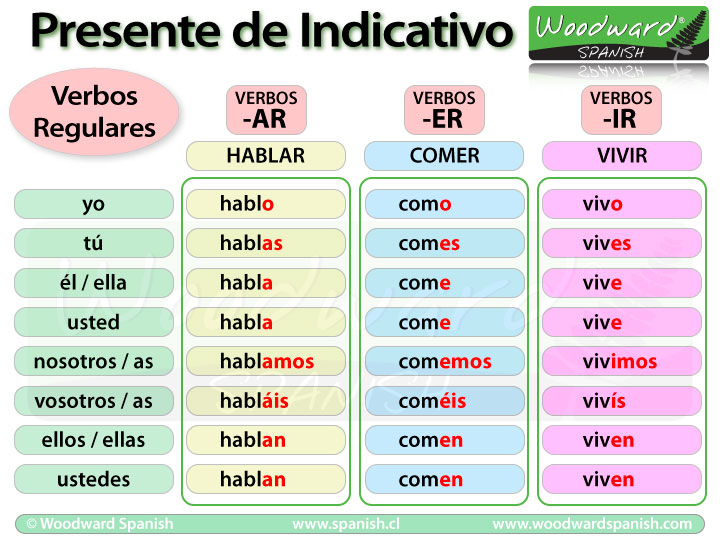
If you are not going abroad permanently, but just want to travel around Spanish-speaking countries, take a look at the Spanish course for travelers.
If you already have a good basic level of the language and want to improve your oral communication skills, take a look at the conversational Spanish course.
Duration of the Spanish course for expats
The length of the course depends on your starting level, the purpose of your studies and the time you have available to study. Courses are:
Short-term (up to 6 months)
For those who have little time and who need to get basic knowledge as quickly as possible.
Long-term (more than 6 months)
For those who want to thoroughly prepare before emigrating, who are going to take international exams and look for a well-paid job abroad.
Tutors
We offer distance learning Spanish with Russian-speaking teachers and with native speakers. Each teacher is a professional and has language and life experience that he is ready to share with you.
Russian speaking tutor
A Russian-speaking teacher will teach you the basics of the language and systematize your existing knowledge.
Native speaker
With a native Spanish tutor you will practice your pronunciation, speak faster, expand your vocabulary, learn to understand foreign speech well.
Textbooks
Our online Spanish course is a modern program based on textbooks from leading foreign publishers: Ediciones SM ELE, Difusión, Anaya ELE, SGEL ELE, Edinumen, Edelsa, Santillana ELE, Everest, Enclave ELE, Instituto Cervantes, Langenscheidt.
Spanish materials for people traveling abroad
In addition to textbooks, the course uses:
Dialogues and role plays
Oral communication with a tutor will help you adapt to a new social environment with the least emotional cost. You will learn how to build sentences correctly, how to pronounce words, how to ask questions. In the process of communication, you will master and consolidate Spanish vocabulary and grammar.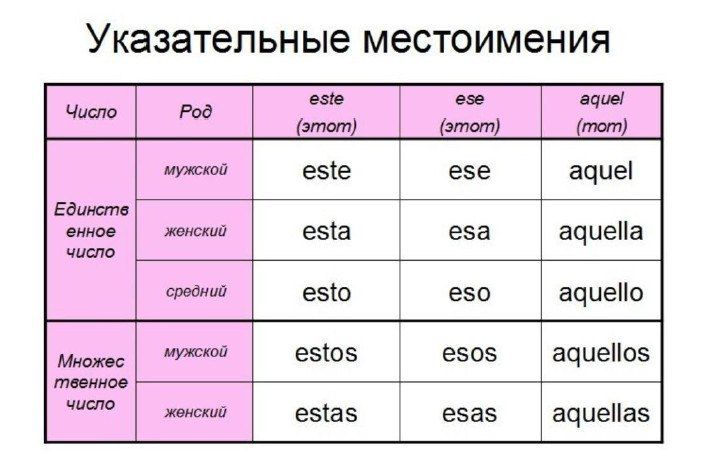
Audio and video materials
By listening to audio and video, you will improve your listening comprehension skills in Spanish, you will also understand native speakers, their accent, pronunciation, and speech features.
Books, articles, exercises
By reading books and doing written exercises, you will consolidate Spanish grammar and vocabulary. Such tasks are well suited to visuals – those who find it easier to remember through reading.
Songs, crosswords, interesting tasks
You will listen to Spanish songs, solve riddles, solve crosswords, do other interesting tasks: this way you will significantly increase your vocabulary, broaden your horizons and learn many nuances about the countries of the language you are learning.
Skype Lesson Program
In the online Spanish course for expats you will learn the main sections of the language:0005
Phonetics
You will improve your pronunciation, learn to understand native speakers and speak in a way that you can be understood.
Vocabulary
You will learn Spanish words, clichés, common phrases and set expressions applicable in various life situations: when going to the store, in a cafe, at the station, when contacting a doctor or the police, in other public places. You will receive a large stock of the necessary basic vocabulary on a variety of topics.
Grammar
You will study grammar rules, consolidate them orally and in writing, learn to express your thoughts correctly in order to communicate calmly in a foreign country.
What skills does the Skype course “Spanish for Expatriates” develop?
The online Spanish course for those leaving for permanent residence abroad is aimed at helping future immigrants quickly and easily adapt to a new language environment and find a well-paid job. You will communicate with new neighbors, acquaintances or colleagues without experiencing stress and moral tension. Further study of the Spanish language after moving abroad will be much easier and faster for you.
Ability to speak + correct pronunciation
You will learn how to speak Spanish correctly, build sentences grammatically correct, expand vocabulary, improve pronunciation. It will be easier for you to make new friends or make useful contacts, you will not be limited to communicating only with Russian-speaking compatriots, including when contacting hospitals, shops, etc.
Ability to understand spoken language
You will listen to many different types of audio material – commercials, news releases, audiobook excerpts, etc. You will begin to understand spoken language well. At your new place of residence, you will not only be able to communicate with native speakers, but also attend exhibitions, theater performances and other events.
Reading
Reading, including reading aloud, is an obligatory part of the classes.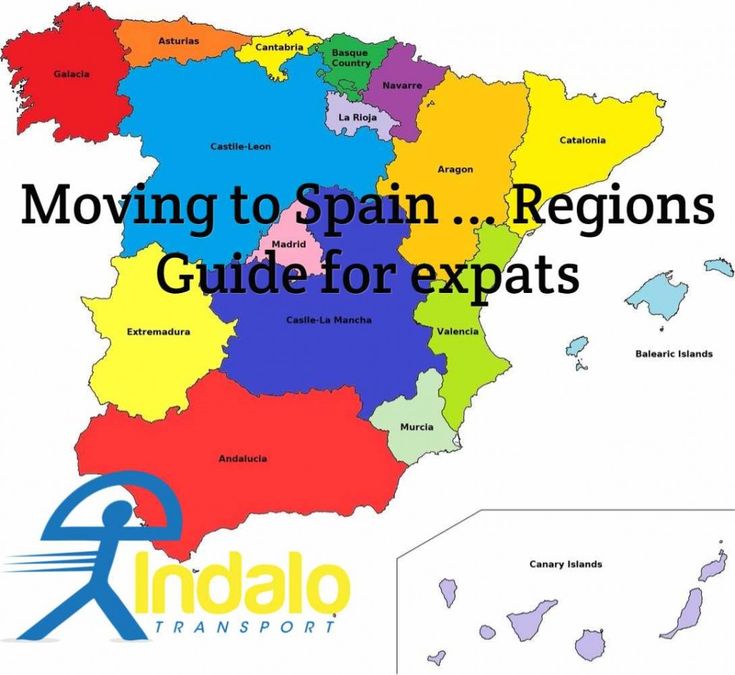
Letter
Our teachers will teach you how to correctly express your thoughts in writing. You will be able to independently fill out official papers, questionnaires, forms, write applications, complaints and other appeals.
Be confident!
With a Skype Spanish course, you won’t feel uncomfortable when you arrive in a new country. You will feel confident in many everyday situations:
1.
at the embassy, consulate, visa center
2.
in a shop, hospital, pharmacy
3.
when communicating with passers-by, neighbors 40005
theater, museum, exhibition, cafe
5.
when renting a car or calling a taxi
6.

at the bank and visa center
7.
at other public places
8.
at the Spanish courses
You will receive a certificate upon completion of the course!
Skyford Language Center also offers other Spanish courses:
-
Spanish for adults
Svg Vector Icons : http://www.onlinewebfonts.com/icon -
Spanish for children and teenagers
Svg Vector Icons : http://www.onlinewebfonts.com/icon -
Spoken Spanish
Svg Vector Icons : http://www.onlinewebfonts.com/icon -
Spanish for tourists
Svg Vector Icons : http://www.onlinewebfonts.com/icon -
Preparation for the Unified State Exam and OGE in Spanish
Svg Vector Icons : http://www.onlinewebfonts.com/icon -
Business Spanish
Svg Vector Icons : http://www.onlinewebfonts.com/icon -
Corporate Spanish Courses
Svg Vector Icons : http://www.onlinewebfonts.com/icon
-
Spanish with a native speaker
Svg Vector Icons : http://www.onlinewebfonts.com/icon -
Help with homework
Svg Vector Icons : http://www.onlinewebfonts.com/icon
Sign up for a free trial lesson
LanguageEnglishGermanFrenchSpanishItalianPortugueseChineseRomanianRussian
Thank you, your request has been accepted. Our specialist will contact you.
Features of learning Spanish when emigrating
In Spain, a residence permit is now issued to everyone who is ready to invest money in the Spanish economy and is not going to take away jobs from the Spaniards. You can buy, for example, an apartment worth at least 500 thousand euros, or enter one of the paid educational institutions, or start your own business – in any of these cases, the government will issue you a residence permit – first for a year, then for five. In theory, no one requires emigrants (at least as far as citizenship is concerned) to learn the language.
In practice, it is quite difficult to obtain a residence permit without a certificate confirming language proficiency. To enter a Spanish-speaking university, you need to know Spanish at the B2 level (free communication in any situations that do not require the use of specialized vocabulary) or C1 (the ability to spontaneously maintain a conversation on any topic). For admission to the PhD, you need a C2 level (knowledge of Spanish at the highest level, including the ability to use specific specialized and narrow-topic vocabulary). To get a job that requires knowledge of the language at the household level, B2 is enough.
The Spanish Examination for Foreigners, DELE, is divided into three levels. The first – C.I.E (Certificado Inicial de Espanol, A1-A2) – confirms language competence at an elementary level of communication.
Each level of D.E.L.E. includes five types of tests and language exercises, and the complexity, volume of tasks and time to complete them depend on the level. In any case, the examinee will have to read the text and answer questions, write an essay, pass listening, perform grammar exercises and demonstrate the ability to maintain a conversation.
In order to pass the exam, you need to get a positive mark (apto) for each of the tasks. One “fail” (non apto) – and the entire exam is considered failed.
For D.E.L.E. you need to obtain a certificate stating that you are not a citizen of a country in which Spanish is the official language.

 onlinewebfonts.com/icon
onlinewebfonts.com/icon
